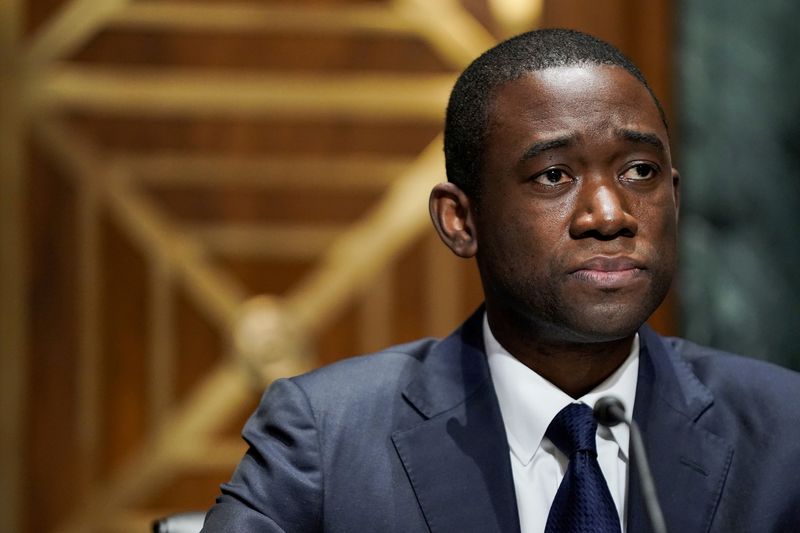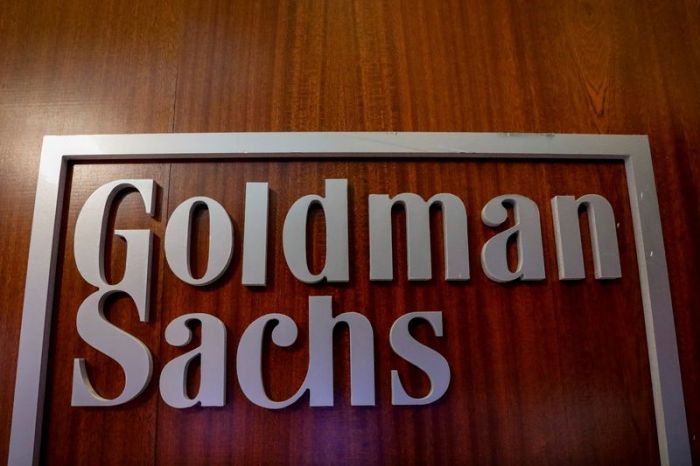PHILADELPHIA (Reuters) -The U.S. government aims to raise $400 billion in new revenue over a decade by making rich Americans respect the Internal Revenue Service again as part of President Joe Biden’s slimmed-down, $1.75 billion social and climate spending plan.
Increased IRS enforcement to collect unpaid taxes makes up the largest source of revenue in the bill that congressional Democrats are trying to finalize this week. Deputy Treasury Secretary Wally Adeyemo told Reuters that a revived fear of audits among wealthy Americans would deter tax avoidance.
While many of Biden’s original investment priorities https://www.reuters.com/world/us/main-battles-ahead-us-democrats-35-trillion-social-spending-bill-2021-09-15 have been shrunk or cut from the bill, plans to invest $80 billion in the IRS over a decade survived. Approval would allow for the hiring of thousands of enforcement staff and replacing antiquated computer systems in coming years.
Hiring agents, updating systems and pursuing sophisticated audit cases will take time, Adeyemo said in an interview, adding that he believes the stepped-up activity will make wealthy individuals think twice about hiding income to avoid taxes.
“When you are focusing on audits and people see that audits are happening – especially amongst people who are situated similar to them – you have better compliance,” Adeyemo said during a visit to Philadelphia to promote the bill’s increased Child Tax Credit benefits.
“When they see more cops on the beat looking at tax returns, what people will decide is that it’s better to pay than to pay the penalty in the end.”
After years of budget cuts and underinvestment, largely under Republican-controlled Congresses, the IRS has 17,000 fewer enforcement employees than a decade ago. The audit rate https://www.irs.gov/pub/irs-pdf/p5382.pdf?mod=article_inline for individuals fell to 0.4% in fiscal 2019, half the 0.8% rate in 2015 and far below the 1.98% rate in 1977 https://www.irs.gov/pub/irs-soi/04dubin.pdf.
IRS Commissioner Charles Rettig, who was appointed by the Trump administration, told senators https://www.reuters.com/article/us-usa-treasury-irs/irs-chief-says-1-trillion-in-taxes-goes-uncollected-every-year-idUSKBN2C0255 in April that the agency is “outgunned” by increasingly sophisticated tax avoidance schemes that underreport business income and capital gains, leaving a “tax gap” between owed and collected taxes as high as $1 trillion a year.
TARGETING TAX CHEATS
Treasury previously had higher ambitions for using IRS enforcement to shrink the tax gap by $700 billion https://www.reuters.com/article/usa-treasury-tax-idCNL2N2N71UR over a decade, about 10% of its $7 trillion estimated tax gap.
But that policy proposal https://home.treasury.gov/system/files/131/General-Explanations-FY2022.pdf relied on Congress approving new requirements for banks to report account inflows and outflows of as little as $600 a year, excluding wages, to enable the IRS to find audit targets by matching account activity with reported income.
The $600 threshold raised some lawmakers’ concerns about financial privacy and the provision was dropped https://www.reuters.com/world/us/democrats-scrap-bank-reporting-requirement-us-spending-package-2021-10-28 from Biden’s revised spending plan last week.
Adeyemo said the IRS will still be able to use more sophisticated technology to better target the wealthiest individuals as it invests in new systems and hires more agents.
The bill’s proposed tax surcharge of 5% on adjusted gross income above $10 million and 3% above $25 million may motivate wealthy individuals to hire more sophisticated tax lawyers, he said, but the IRS aims to meet that challenge.
“The question becomes how do you use the resources of the IRS to verify and validate and where that is not possible to go out and ask questions. And we’ll have a bunch more people who can ask those questions,” Adeyemo said.
Adeyemo called the $400 billion revenue target for the IRS investments a “conservative” estimate, but said the agency will need to take stronger action and have more resources to fully close the tax gap.
New questions over the spending plan emerged on Monday as Senator Joe Manchin, the Democrat whose vote is critical for the Democratic-only measure, declined to commit to supporting https://www.reuters.com/world/us/us-congress-november-agenda-not-faint-heart-2021-11-01 it, citing “budget gimmicks” among other concerns.
Prior to Manchin’s statement, Adeyemo said he was confident Democrats would support the plan because its benefits, including universal preschool education for children, an expanded Child Tax Credit and family leave benefits, were popular.
.
(Reporting by David Lawder; Editing by Heather Timmons, Daniel Wallis and Peter Cooney)
















